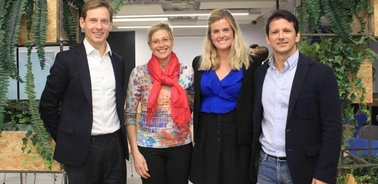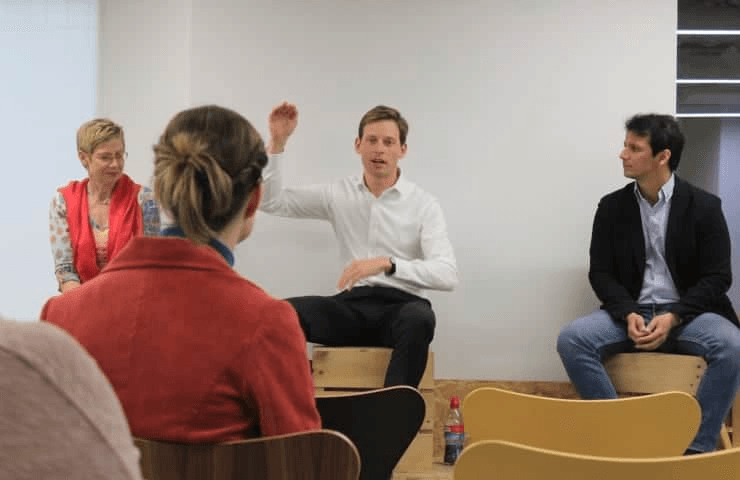- Home
- News And Events
- What’s Going On
- Ie Women Talk Business And Human Rights
IE Women Talk Business and Human Rights

Sustainability and Human Rights professionals invited by the IE Women in Business Club urged IE students to prioritize human and labor rights in business.
The IE Women in Business Club hosted a panel of three business and human rights experts, focused on promoting sustainable social practices in business. The speakers addressed the latest industry trends, such as shifting standards on human rights within the United Nations, increasing government and NGO pressure and growing customer consciousness.
Representing employers’ interests across the UN, panelist Peter Hall currently sits as Adviser for Human Rights and Responsible Business Conduct at the International Organization of Employers (IOE). He examined the IOE’s recent policy approaches to influence worldwide debates such as the G20, along with progress being made for labor rights, sustainability and Corporate Social Responsibility (CSR) within businesses.
“Companies are also understanding the importance of reputational risk and the benefits on long-term profitability, especially in the Finance sector.”
“What we have now is a long tradition of industrial relations and a quite formalized universe of institutions. In some places, CSR is becoming intertwined in hard law. Companies are also understanding the importance of reputational risk and the benefits on long-term profitability, especially in the Finance sector,” he argued.
Hilde Jervan contributed with the Norwegian government perspective, where she works as Chief Advisor at the Council of Ethics and Global Pension Fund. She dove into the council’s key responsibilities in inquiring, analyzing and auditing small businesses and corporations to ensure their compliance with the Organisation for Economic Co-operation and Development (OECD) guidelines and the Expectation Document.
“Most companies have great policies on paper, but they are poorly implemented. We assess companies in Cambodia, Vietnam, Bangladesh, India and more, to ensure that labor rights are not violated,” Jervan explained. “We interview workers offsite, inspect the factories and start dialogues with the companies. Often we don’t even get a response, we really need to raise the issue to the management level to experience some change.”
Founder of Lots Specialty Coffee, Fernando Porres gave behind-the-scenes insights on the Specialty Coffee Movement and Spain’s start-up businesses. His argument exposed how the growing customer demand for quality ingredients has incited coffee businesses to further scrutinize producer and supplier certifications, ensure human rights compliance and foster better labor conditions, for which, he stated “we are happy to pay a premium price.”
“The specialty coffee industry is pioneering the discourse on business and human rights. Business owners appreciate quality because the consumer appreciates it. Quality in general demands that there be something human about it. We are protecting humans, but doing good business as well” he said.
